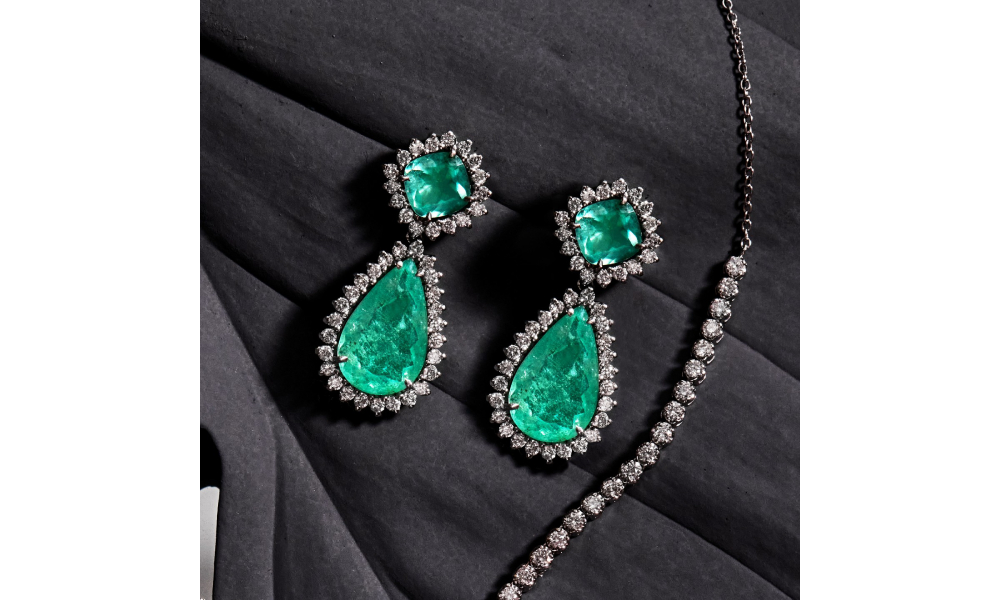Rodolfo and Nelson Semeoni, Directors of Montecristo Joalheria, a renowned luxury retail brand from Brazil, spoke with Solitaire International during their first visit to India. They were seeking business partnerships at the 3rd edition of GJEPC’s Gem & Jewellery Buyer-Seller Meet, held at Bharat Ratnam Mega CFC, Mumbai. The duo revealed that Brazil’s luxury market is thriving, with increasing consumer demand for high-end natural diamond and coloured gemstone jewellery.
Can you tell us about Montecristo’s history and presence in Brazil?
Montecristo is a family business that’s been around since 1961. It was started by our grandfather, Nelson. I’m the third generation in the business, as is my cousin, also named, Nelson. Our parents have been in the business for almost 40 years, and the company now has a legacy of 63 years. We are based in São Paulo City, with a store nearby in Campinas, which is the 5th or 6th largest city in Brazil.
What are the main areas of business for Montecristo?
We have two main lines of business—watches and jewellery. On the watch side, we deal with brands like Rolex, Cartier, Tag Heuer, and Tudor. As for jewellery, we design our own pieces and collaborate with other designers, bringing new concepts and trends to Brazil. Currently, we’re here in India attending the BSM to find new partners.
How many stores does Montecristo currently have?
We have two stores—one in São Paulo and another in Campinas. We used to have six or seven stores, but we decided to concentrate our efforts on fewer stores to offer a more personalized, high-end experience for our customers. We believe that for luxury purchases, clients are willing to travel to a store where they can have the best possible experience. For us, it’s always quality over quantity.

Is this your first time in India? What are your expectations?
Yes, it’s our first time in India. We’ve always seen India as a strong player in the jewellery and diamond industry, both commercially and in terms of craftsmanship. We know that around 85% to 90% of diamonds pass through Surat or Mumbai, so we only have good things to say about India. Now we’re looking to establish partnerships and explore how we can do business here.
We are focused on natural diamonds, and we are trying to be find the right partners who can engage in direct India to Brazil business.
Are you familiar with any Indian designers or companies that you’ve worked with?
We haven’t established partnerships yet, but we’ve had conversations with companies like Uni Design, Hari Krishna, and KBS. We’re still exploring opportunities.
What are Brazilian consumers looking for in diamonds and coloured stones?
Brazilian consumers vary depending on their market segment—high-end, middle-end, or low-end. We focus on the high-end, with diamond sizes starting from 50 points, and we try to stay above J colour. Brazil is also known for its emeralds, which are a big part of our offering. Additionally, the Paraiba tourmaline, which comes from Brazil, is highly sought after worldwide. Also, multicolour tourmalines are trending the world over.
What do Brazilian consumers prefer in the bridal jewellery category?
Bridal jewellery in Brazil typically revolves around two key moments. First, during the proposal, where the classic solitaire diamond ring is the go-to choice. The classic engagement ring is almost always set with a solitaire diamond, and it’s customized with side stones, if desired. After the engagement, the next step is the wedding, where couples exchange plain gold bands to symbolize their marriage. We deal only in natural gemstones and 18-karat gold jewellery.

What is the current market for luxury and high-end jewellery in Brazil?
The luxury market in Brazil is growing steadily, and this is true not just for jewellery but for other sectors like automobiles, fashion, and real estate. São Paulo alone is home to about 12 million people, and the luxury market is definitely on the rise. Brazilian consumers love jewellery, and we are there to cater to that need. Brazilians also prefer coloured gemstones.
Have you participated in any other Indian events like IIJS?
This is our first time in India, but we are already in discussions about new events and partnerships. We recognize the importance of being close to companies that are making a difference in the industry.
How does platinum jewellery perform in Brazil compared to gold?
Platinum isn’t as popular as gold in Brazil. Gold remains the preferred choice, much like in India. However, with the rising price of gold, platinum is becoming more competitive, and we expect its popularity to grow over time, especially among modern consumers who prefer understated luxury.

